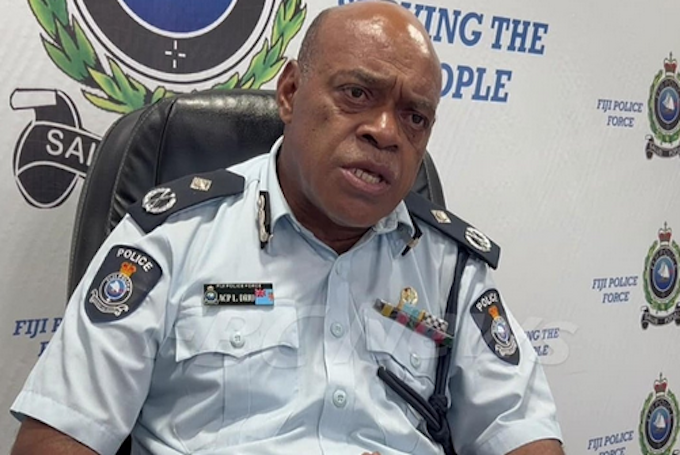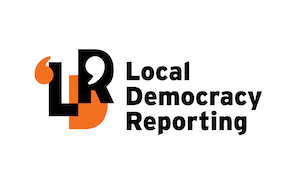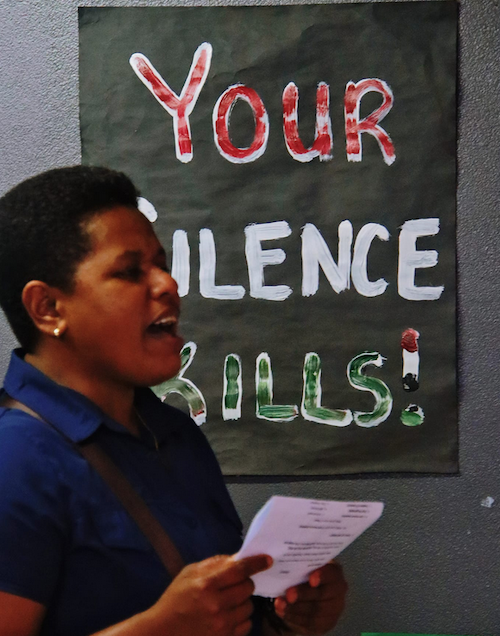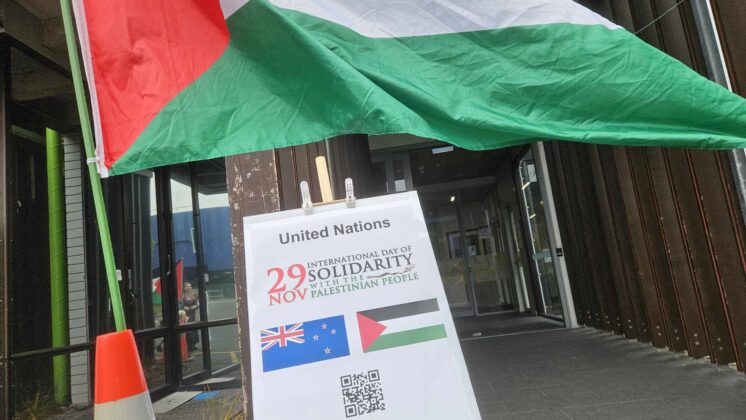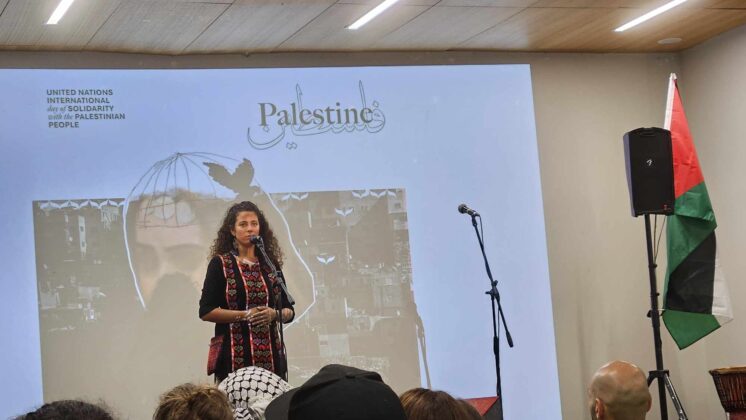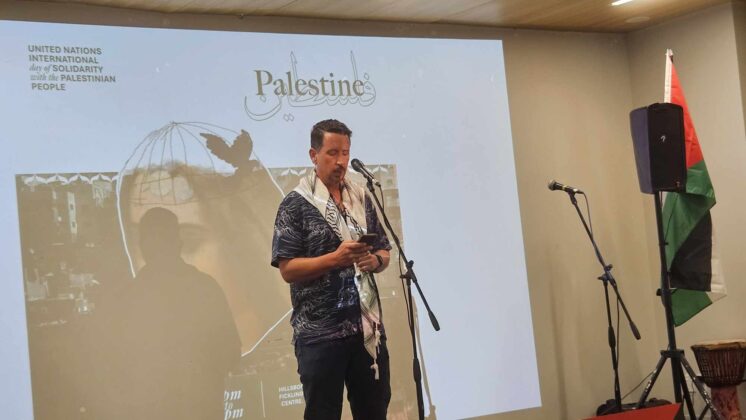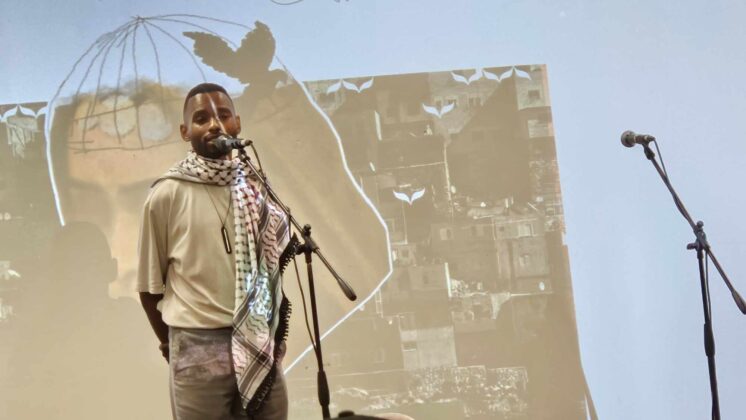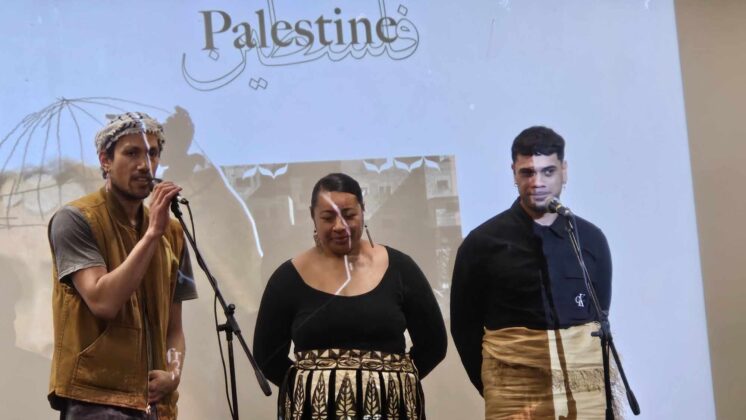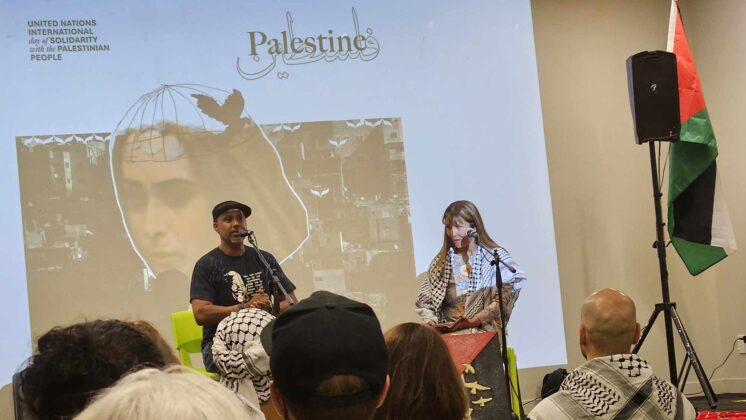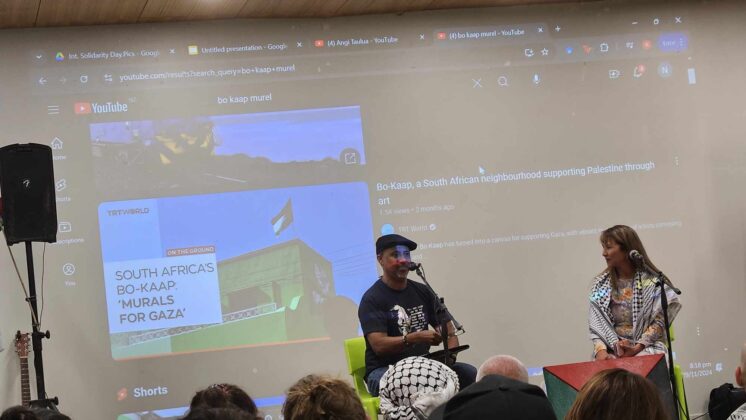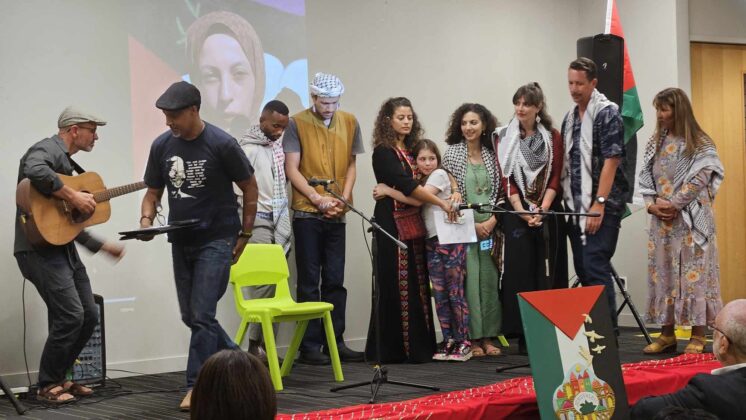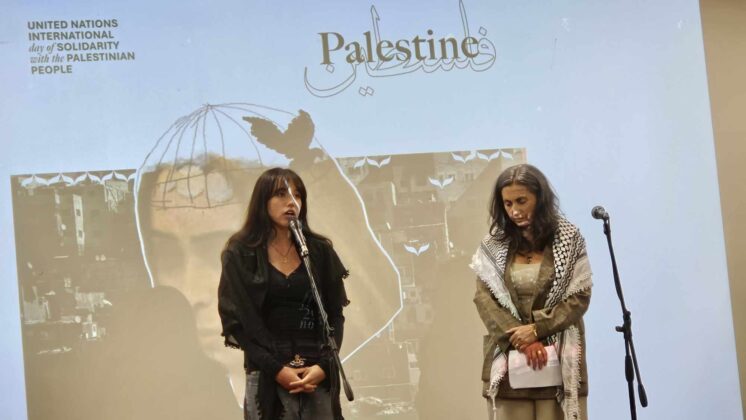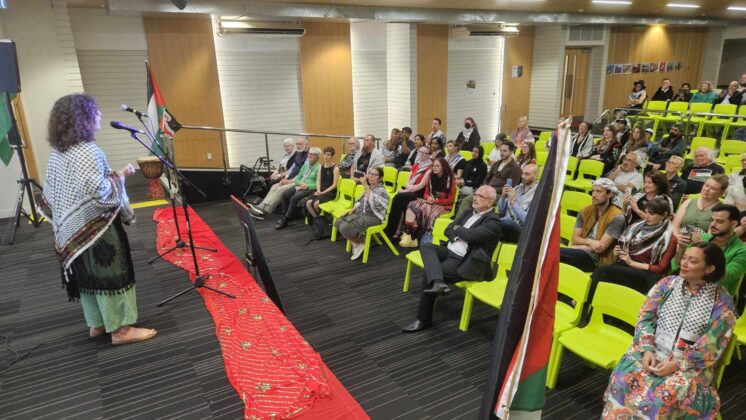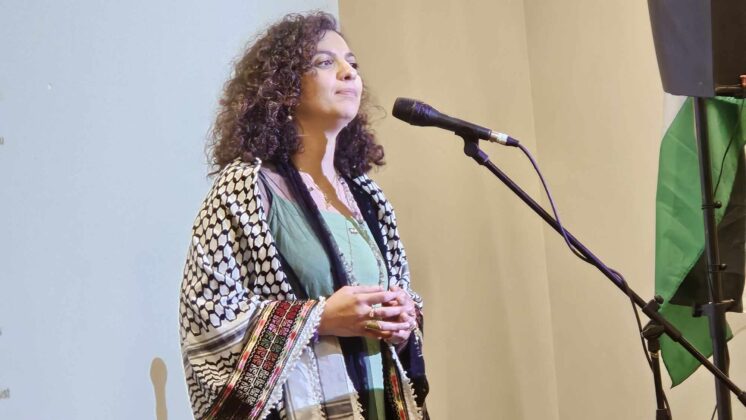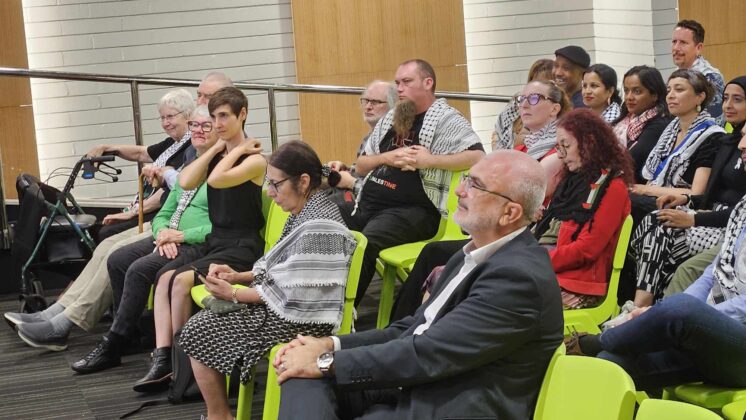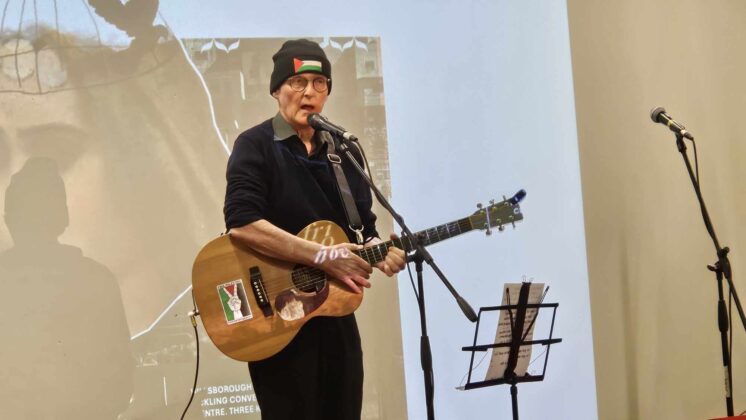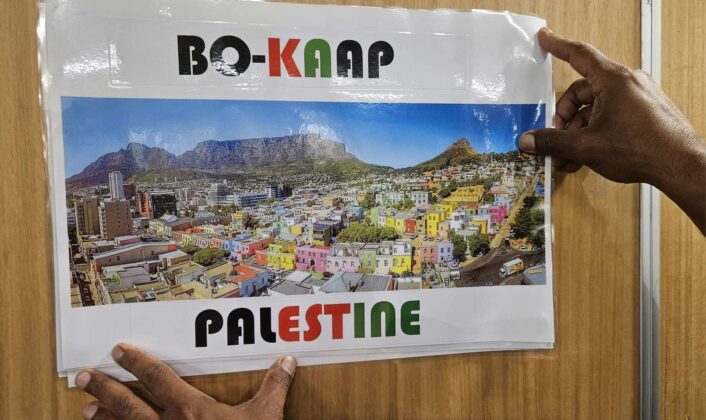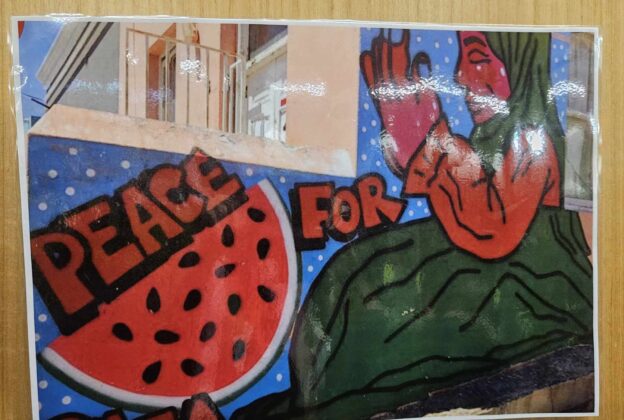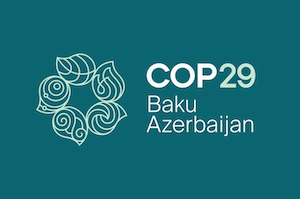COMMENTARY: By Katrina Mitchell-Kouttab
As 2024 came to a close and we have stepped into a new year overshadowed by ongoing atrocities, have you stopped to consider how these events are reshaping your world?
Did you notice how your future — and that of generations to come — is being profoundly and irreversibly altered?
The ongoing tragedy in Palestine is not an isolated event. It is a crisis that reverberates far beyond borders, threatening your safety, the well-being of your children and family.
- READ MORE: ‘Gaza is a death trap’: At least 50 Palestinians killed in Israeli attacks — the number of aid people killed rises to 736
- Other Israel’s war on Gaza reports
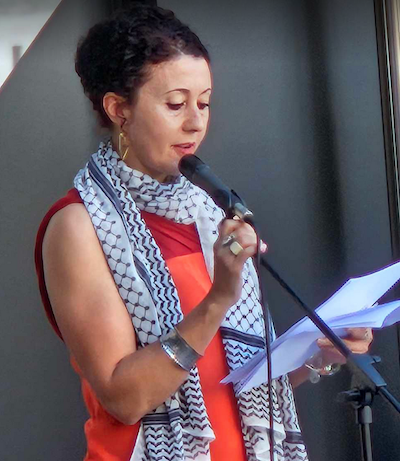
Even fragile ecosystems and creatures have been obliterated and affected by the fallout from Israel’s chemicals and pollution from its weapons.
The deliberate targeting of civilians, rampant violations of international law, and the obliteration of the rights of children are not distant horrors. They are ominous warnings of a world unravelling — consequences that are slowly seeping into the comfort of your home, threatening the very foundations of the life you thought was secure.
But here’s the hard truth: these outcomes don’t just happen in a a vacuum. They persist because of the silence, indifference, or complicity of those who choose not to act.
The question is, will you stand up for a better future, or will you look away? And how could Palestine possibly affect you and your family? Read on.
Israel acting with impunity for decades
Israel has been acting with impunity for decades, flouting the norms of our legal agreements, defying the United Nations and its rulings and requests to act within the agreed global rules set after the Holocaust and the Nazis disregard for humanity.
The Germans, under Nazi rule, pursued a racist ideology to restructure the world according to race, committing crimes against humanity and war crimes that resulted in a devastating world war and the deaths of millions of people, including millions of Jews. A set of rules were formed from the ashes of these victims to ensure this horror would never happen again. It’s called international law.
However, after the Nazis defeat, it took less than a few years before atrocities began again, perpetrated by the very people who had just been brutally massacred and targeted.
European Jews, including holocaust survivors, armed by Czechoslovakia, funded by the Nazis (Havaara agreement), aided militarily by Britain, the US, Italy and France among others, arrived on foreign shores to a land that did not belong to them.
Once there, they began to disregard the very rules established to protect not only them, but the rest of humanity — rules designed to prevent a repeat of the Holocaust, safeguard against the resurgence of ideologies like Nazism, and ensure impunity for such actions would never occur again.
These rules were a shared commitment by countries to conduct themselves with agreed norms and regulations designed to respect the right of all to live in safety and security, including children, women and civilians in general. Rules that were designed to end war and promote peace, justice, and a better life for all humankind.
Rules written to ensure the sacred understanding, implementation and respect of equal rights for all people, including you, were followed to prevent us from never returning to the lawlessness and terror of World War Two.
But the creation of Israel less than 80 years ago flouted and violated these expectations. The mass murder of children, women and men in Palestine in 1948, which included burning alive Palestinians tied to trees and running them over as they lay unable to move in the middle of town squares, was only the beginning of this disrespectful dehumanisation.
Terrorised by Jewish militia
Jewish militia terrorised Palestinians, lobbing grenades into Palestinian homes where families sheltered in fear, raping women and girls, and forcing every man and boy from whole villages to dig their own trenches before being shot in the back so they fell neatly into their graves.
Pregnant Palestinian women had their bellies sliced open, homes were stolen along with everything in it — including my families — and many family members were murdered.
This included my great grandmother who was shot, execution style, in front of my mother as she carried a small mattress from our home for her grandchildren when they were forcibly displaced. I still don’t know what happened to her body or where she is buried. I do know where our house is still situated in Jerusalem, although currently occupied.
These atrocities enabled Israel’s birth, shameful atrocities behind its creation. There is not one Israeli town or village that is not built on top of a Palestinian village, or town, on the blood and bones of murdered Palestinians, a practice Israel has continued.
As I write, plans to build more illegal settlements on the buried bodies of Palestinians in Gaza have already been drawn up and areas of land pre-sold.
These horrific crimes have continued over decades, becoming worse as Israel perfected and industrialised its ability to exterminate human souls, hearts and lives. Israel’s birth from its inception was only possible through terrorist actions of Jewish militia. These militia Britain designated as terrorist organisations, a designation that still stands today.
Jewish militia such as (Haganah, Irgun and Stern Gang) formed into what is now known as the Israeli Defence Force, although they aren’t defending anything; Palestine was not theirs to take in the first place.
There was never a war of independence for Israel because the state of Israel did not exist to liberate itself from anyone. Instead, Britain illegally handed over land that already belonged to the Palestinians, a peaceful existing people of three pillars of faith — Palestinian Christians Muslims and Jews. If there were any legitimate war of independence, it would be that of the Palestinian people.
Free pass to act above the law
Israel continues to rely on the Holocaust’s memory to give it a free pass to act above the law, threatening world peace and our shared humanity, by using the memory of the horrors of 1945 and the threat of antisemitism to deter people from criticising and speaking out against the state’s unlawful and inhumane actions.
Yet Israel echoes the horrors of Nazi Germany and its destruction with its behaviour, the difference being the industrialisation of mass killing, modern warfare and weapons, the use of AI as a killing machine, the creation of chemical weapons and huge concentration and death camps which far surpass Germany’s capabilities.
Jews around the world have been deeply divided by Israel’s assertion that it represents all Jewish people. Not all Jews religiously and politically support Israel, many do not feel a connection to or support Israel, viewing its actions and policies as separate from their Jewish identity. For them, Israel’s claims do not define what it means to be Jewish, nor do they see its conduct as aligned with Jewish values.
This is not a “Jewish question” but a political one and conflating the two undermines the diverse perspectives within Jewish communities globally and is harmful to Jewish people. It is important to maintain a clear distinction between Judaism and the political actions of Israel.
How does a genocide across the world affect you?
The perpetration of genocide and gross violations of human rights, facilitated or supported by Western powers, erodes the very foundations of the global legal framework that protects us all. This assault weakens democracy, undermines international law, and destabilises the structures you rely on for a secure future.
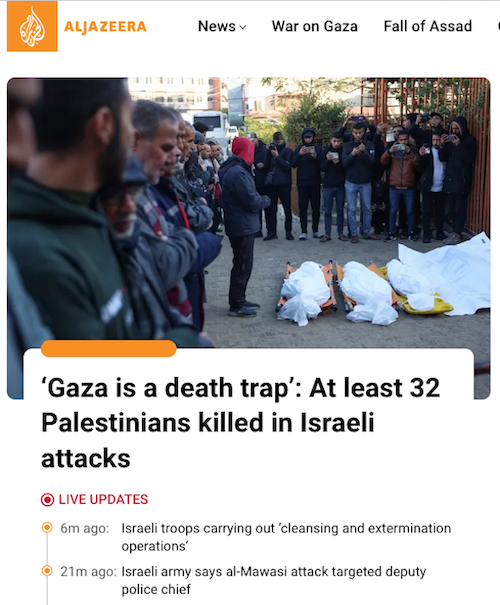
It leaves your defences crumbling, your safety compromised, and your vulnerabilities exposed to the chaos that follows such lawlessness as a global citizen of this world under the same protections and with the same equality as the Palestinians.
Palestinian children are no less deserving of safety and rights than any other children. When their rights are ignored and violated, it undermines protections for children worldwide, creating a precedent of vulnerability and injustice. If violations are deemed acceptable for some, they risk becoming acceptable for all.
Sitting safely in Aotearoa does not guarantee protection. The actions of Israel and the US, Western countries — massacring and flattening entire neighbourhoods — send a dangerous message that such horrors are only for “others”, for “brown people” who speak a different language.
But Western countries are the global minority. Many nations now view the West with growing disdain, especially in light of Israel and America’s actions, coupled with the glaring double standards and inaction of the West, including New Zealand, as they stand by and witness a genocide in progress.
When children become a legitimate target, the safety of all children is compromised. Your kids are at risk too. Just because you live on the other side of the world does not mean you are immune or beyond the reach of those who see such actions as justification for retaliation.
If such disregard for human life is deemed acceptable for one people, it will inevitably become acceptable for others. Justice and equality must extend to all children, regardless of nationality, to ensure a safer world for everyone.
But why should you care?
Because Israel and the US are undermining the framework that protects you. Israel’s violations of International and humanitarian law including laws on occupation, war crimes and bombing protected institutions such as hospitals, schools, UN facilities, civilian homes and areas of safety, undermines these and sets a dangerous precedent for others to follow. Israel does not respect global peace, civilians, human rights nor has respect for life outside of its own. This lawlessness and lack of accountability is already giving other states the green light to erode the norms that protect human rights, including the decimation of the rights of the child.
The West’s support for Israel, namely the US, the UK, Canada, much of Europe, Australia and New Zealand, despite its clear violations of international law, exposes a fundamental hypocrisy. This weakens the credibility of democratic nations that claim to champion human rights and justice.
The failure of institutions like the UN to hold Israel accountable erodes trust in these bodies, fostering widespread disillusionment and scepticism about their ability to address other global conflicts. This has already fuelled an “us versus them” mentality, deepening the divide between the Global South and the Global North.
This division is marked by growing disrespect for Western governments and their citizens, who demand moral authority and adherence to the rule of law from nations in the East and South yet allow one of their “own” to brazenly violate these principles.
This hypocrisy undermines the hope for a new, respectful world order envisioned after the Holocaust, leaving it damaged and discredited.
Israel, despite its claims, has no authentic ties to the Middle East. What was once Palestinian land deeply rooted in Middle Eastern culture, has been overtaken and reshaped into to an artificial state imposed by mixed European heritage. It now stands as a Western outpost in stark contrast and isolated from surrounding Eastern cultures.
The failure of the West and the international community to stop the Palestinian genocide has begun a new period of genocide normalisation, where it becomes acceptable to watch children being blown up, women and men being murdered, shot and starved to death.
This acceptance then becomes a part of a country’s statecraft. Palestinian genocide, while it might be a little “uncomfortable” for many, has still been tolerable. If genocide is tolerable for one, then its tolerable for another.
Bias and prejudice
If you can comfortably go about your day, knowing the horror other innocent human beings are facing then perhaps it might be time to reflect on and confront any underlying biases or prejudices you hold.
An interesting thought experiment is to transform and transfer what is happening in Palestine to New Zealand.
Imagine Nelson being completely flattened, and all the inhabitants of Auckland, plus some, being starved to death.
Imagine all New Zealand hospitals being destroyed, Wellington hospital with its patients still inside is blown up. All the babies in the neonatal unit are left to die and rot in their incubators, patients in the ICU units and those immobile or too sick to move are also left to die, this includes all children unable to walk in the Starship hospital.
Electricity for the whole country is turned off and all patients and healthcare workers are forced to leave at gunpoint. New Zealand doctors and nurses are stripped down to their underwear and tortured, this includes rape, and some male doctors are left to die bleeding in the street after being raped to death with metal poles and electrodes.
Water is then shut down and unavailable to all of you. You cannot feed your family, your grandchildren, your parents, your siblings, your best friends.
Imagine New Zealanders burying bodies of their children and loved ones in makeshift mass graves, while living in tents and then being subjected to chemical weapon strikes, quad copters or small drones’ attacks that drop bombs and exterminate, shooting people as they try to find food, but targeting mostly women and children.
Imagine every single human being in Upper Hutt completely wiped out. Imagine 305 New Zealand school buses full of dead children line the streets, that’s more than 11,000 killed so far. Each day more than 10 New Zealand kids lose a limb, including your children.
This number starts to increase with the hope to finally ethnically cleanse Aotearoa to make way for a new state defined by one religion and one ethnicity that isn’t yours, by a new group of people from the other side of the world.
These people, called settlers, are given weapons to hurt and kill New Zealanders as they rampage through towns evicting residents and moving into your homes taking everything that belongs to you and leaving you on the street. All your belongings, all your memories, your pets, your future, your family are stolen or destroyed.
Starting from January 2025, up to 15 New Zealanders will die of starvation or related diseases EVERY DAY until the rest of the world decides if it will come to your aid with this lawlessness. Or maybe you will die in desperation while others watch you on their TV screens or scroll through their social media seeing you as the “terrorist” and the invaders as the “victims”.
If this thought horrifies you, if it makes you feel shocked or upset, then so too should others having to endure such illegal horrors. None of what is happening is acceptable, as a fellow human being you should be fighting for the right of all of us. Perhaps you might think of our own tangata whenua and Aotearoa’s own history.
What could this mean for New Zealand?
We are not creating a bright future for a country like New Zealand, whose remote location, dependence on trade, and its aging infrastructure, leaves it vulnerable to changing global dynamics. This is especially concerning with our energy dependence on imported oil, our dependence on global supply chains for essential goods including medicine (Israel’s pager attack against Hezbollah has compromised supply chains in a dangerous and horrific violation that New Zealand ignored), our economic marginalisation, and our security challenges.
All of this while surrounded by rising tensions between superpowers like the US and China which will affect New Zealand’s security and economic partnerships. Balancing economic and political ties is complicated by this government’s focus on strengthening strategic alliances with Western nations, mainly the US, whose complicity in genocide, war crimes, and disrespect for the rule of law is weakening its standing and threatens its very future.
Targeting marginalised groups
The precedent set in Palestine will embolden oppressive regimes elsewhere to target minority groups, knowing that the world will turn a blind eye. Israel is a violent, oppressive apartheid state, operating outside of international law and norms and has been compared to, but is much worse than the former apartheid South Africa.
This will have a huge impact felt all over the world with the continued refugee crisis. Multicultural nations such as New Zealand will struggle to cope with the support needed for the families of our citizens in need.
An increase of the far right reminiscent of Nazi ideology and extremism
Israel is a pariah state fuelled by radicalisation and extremism with an intolerance to different races, colour and ethnicity and indigenous populations. This has created a fertile ground for extremist ideologies, destabilising regions far beyond the Middle East as we have seen in Europe with the rejuvenation of the far-right movement.
Israel’s genocidal onslaughts will continue to be the cause for ongoing instability in the region, affecting global energy supplies, trade routes, and security. The Palestinian crisis will not be answered with violence, oppression and war. We aren’t going anywhere, and neither should we.
Weaponising aid and healthcare
Israel’s deliberate restriction of food, water, and medical supplies to Gaza weaponises humanitarian aid, violating basic principles of humanity. A new weapon in the arsenal of pariah states and radical violent countries and a new Israeli tactic to be copied and used elsewhere. Targeting hospitals, healthcare workers, distribution centres, ambulances, the UN, and collectively punishing whole populations has never been and will never be acceptable.
If it is not acceptable that this happens to you in Aotearoa, then nor is it acceptable for Palestinians in Palestine. It is intolerable for other “terror regimes” to commit such acts, so why is it deemed acceptable when carried out by Israel and the US?
Undermining the rights to free speech, peaceful protest and freedoms
During the covid pandemic, many New Zealanders were concerned with government-imposed restrictions that could be used disproportionately or as pretexts for authoritarian control. This included limitations on freedom of movement, speech, assembly, and privacy.
And yet Palestinians endure military checkpoints, curfews, restricted movement within and between their own territories, and the suppression of their right to protest or voice opposition to occupation — all due to Israel’s oppressive and illegal control. This is further enabled by the political cover and tacit support provided by this government’s failure to speak out and strongly condemn Israel’s actions.
Through its failure to take meaningful action or fulfil its third-party state obligations, this government continues to maintain normal relations with Israel across diplomatic, cultural, economic, and social spheres, as well as through trade. Moreover, it wrongly asserts on its official foreign affairs websites and policies that an occupying power has the right to self-defence against a defenceless population it has systematically abused and terrorised for decades.
The silencing of pro-Palestinian activists and criminalisation of humanitarian aid also create a chilling effect, discouraging global solidarity movements and undermining the moral fabric of societies. The use of victimhood to shroud the aggressor and blame the victim is a low point in our harrowed history. As is the vilification of moral activism and those that dare to stand against the illegal and sickening mass killing of civilians.
The attempt to persecute brave students standing up to Zionist and Israeli-run organisations and those supporting Israel (including academic and cultural institutions), by both trigger-happy billionaire Jewish investors and elite families and company investors whose answer to peaceful resistance is violence, demonstrates how far we have fallen from democracy and the rights of the citizen.
I find it completely bizarre that standing up against a genocide of helpless, unarmed civilians is demonised in order to protect the thugs, criminals and psychopaths that make up the Israeli state and its criminal actors, and the elite families and corporations profiting from this war.
Even here in Aotearoa, protesters have been vilified for drawing attention to Israel’s war crimes and double standards at the ASB Classic tennis tournament. Letting into New Zealand an IDF soldier who is associated with an institution directly implicated in war crimes and crimes against humanity should be questioned.
These protesters were falsely labelled as “pro-Hamas” by Israeli and Western media. They were portrayed negatively, seen as a nuisance. Their messages about supporting human rights and stopping a horrific genocide from continuing were not mentioned.
The focus was the effect their chants had on the tennis match and the Israeli tennis player, who was upset. Exercising their legal rights to demonstrate, the protesters were not a security issue. Yet Lina Glushko, the Israeli tennis player, claimed she needed extra security to combat a dozen protesters, many over the age of 60, who were never in any proximity of the controversial player nor were ever a threat.
No mention that Lina Glushko lives in an illegal settlement in the Occupied Palestinian Territories, or that she was in service from 2018-2020 during the Great March of Return. Or that this tennis player has made public statements mocking the suffering of Palestinians, inconsistent with Aotearoa’s commitment to combating hate speech and promoting inclusivity and respect.
Her presence erodes the integrity of international sports and sends a dangerous message that war crimes and human rights violations carry no meaningful consequences despite international law and the recent UNGA (UN General Assembly) and ICJ (International Court of Justice) resolutions and advisory opinions.
Allowing IDF soldiers entry into New Zealand disregards the pain and suffering of Palestinians and the New Zealand Palestinian community, dehumanising their plight. It sends a message of complicity to the broader international community, one that was ignored by most Western media.
Similarly, Israel’s attempts to not just control the Western media but to shut down and kill journalists, is not only a war crime, but is terrifying. Journalists’ protection is enshrined in international law due to the essential nature of their work in fostering accountability, transparency, and justice. They expose corruption, war crimes, and human rights abuses. Real journalism is vital for democracy, ensuring citizens are informed about government actions and global events.
Israel’s targeting of journalists undermines the rule of law and emboldens it and other perpetrators to commit further atrocities without fear of scrutiny or consequences.
The suffering of Palestinians is a human rights issue that transcends borders. Allowing genocide and oppression to continue undermines the shared humanity that binds us all.
Israel’s actions reflect the dehumanisation of an entire population and our failure to enforce accountability for these crimes weakens international systems designed to protect your family and you.
Israel’s influence is far reaching, and New Zealand is not immune. Any undue influence by foreign states, including Israel, threatens New Zealand’s sovereignty and ability to make independent decisions in its national interest. Lobbying efforts by organisations like the Zionist Federation or the Jewish National Fund (JNF), the Jewish Council and the Holocaust Centre of New Zealand push policies that do not align with New Zealand’s broader public interest.
Aligning with a state that is violating rights and in a court of law on charges of war crimes, crimes against humanity and genocide, leaves citizens wide open to the same controls and concerns we are now seeing Americans and Europeans face at the mercy of AIPAC and Israeli influence.
Palestine is a test of the international community’s commitment to justice, human rights, and the rule of law. If Israel is allowed to continue acting with impunity, the global system that protects us all will be irreparably weakened, paving the way for more injustice, oppression, and chaos. It is a fight for the moral and legal foundations of the world we live in and ignoring it will have far-reaching consequences for everyone.
So, as you usher in 2025, don’t sit there and clink your glasses, hoping for a better year while continuing to ignore the suffering around you. Act to make 2025 better than the horrific few years the world has been subjected to, if not for humanity, then for yourself and your family’s future. Start with the biggest threat to world peace and stability — Israel and US hegemony.
What you can do
You can make a difference in the fight against Israel’s illegal occupation and violations of human rights, including the deliberate targeting of children by taking simple yet impactful steps. Here’s how you can start today:
Boycott products supporting oppression:
Remove at least five products from your weekly supermarket shopping list that are linked to companies supporting Israel’s occupation or that are made in Israel. Use tools like the “No Thanks” app to identify these items or visit the Boycott, Divestment, and Sanctions (BDS) website for detailed advice and information.
Hold the government accountable:
Write letters to your government representatives demanding action to uphold democracy and human rights. Remind them of New Zealand’s obligations under international law to stand against human rights abuses and violations of global norms. Demand fair and equitable foreign policies designed to protect us all.
Educate yourself:
Learn about the history of the Palestine-Israel conflict, especially the events of 1948, to better understand the roots of the ongoing crisis. Knowledge is a powerful tool for advocacy and change.
Seek alternative news sources:
Expand your perspective by accessing a wide range of news sources including from platforms such as Al Jazeera, Double Down News, and Middle East Eye.
Be a citizen, not a bystander:
Passive spectatorship allows injustice to thrive. Take a stand. Whether by boycotting, writing letters, educating yourself, or raising awareness, your actions can contribute to a global movement for justice for us all.
Together, we can challenge systems of oppression and demand accountability for crimes against humanity. Let 2025 not just be another year of witnessing suffering but one where we collectively take action to restore justice, uphold humanity, and demand accountability.
The time to act is now.
Katrina Mitchell-Kouttab is a New Zealand Palestinian advocate and writer.
This post was originally published on Asia Pacific Report.
